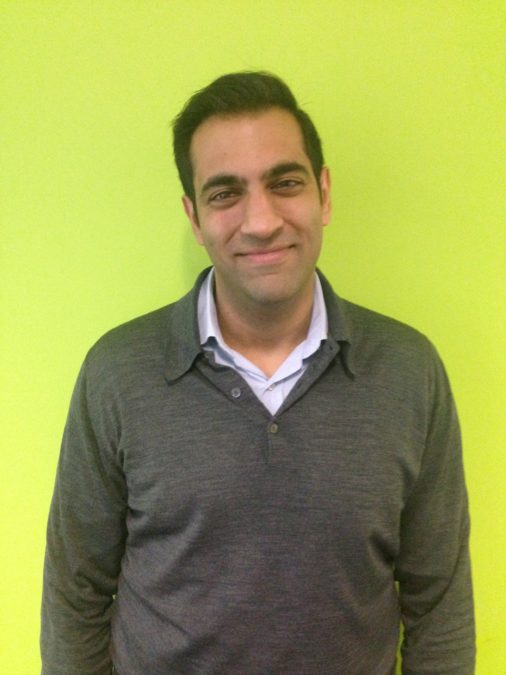Are you about to find yourself being treated by robot doctors when you ring up your local GP surgery? Recent press might leave you with the impression that primary care will soon have a twist of 2001: A Space Odyssey about it, in a swift move to automation and artificial intelligence. The reality, though, is much less revolutionary – and almost certainly the better for it.
This is a fascinating time for healthcare. There’s a growing consensus that the health service needs support to up its technological game – see for instance Matt Hancock’s latest intervention on pagers, which almost no other sector uses nowadays – and the recent Topol Review provided some welcome recommendations on upskilling the NHS workforce in the tech stakes. It’s clear the NHS needs better digital tools, and I’ll be glad to see it happen.
But even some of us who provide digital health services are a bit sceptical of the haste with which we see some solutions envisioned. Most notably, I’m wary of the ongoing hype around artificial intelligence: it seems barely a week passes now without a breathless op-ed forecasting replacement of human clinicians with AI chatbots. There’s a sense here that we’re expecting a promising technology to run before it can really walk – and run headlong into patients who may not actually want it.
So just over a week ago, my company commissioned some research from YouGov to test what kind of digital tools patients are most open to as an alternative to seeing a doctor in person. The survey was simple: we asked whether people felt they’d waited too long in the last year to see a GP, and whether, as an alternative, they’d prefer a phone call with a GP, a video chat, or an AI tool like a chatbot.
Just over half of those who’d had a GP appointment in the last year felt they’d waited too long. That’s really not good enough. This has absolutely nothing to do with how hard GPs work, though (or their support staff, for that matter). Over the last few weeks, the papers have been full of some pretty sobering figures on what doctors are putting themselves through to care for patients and the abject lack of life/work balance that many of them have to deal with.
If you ask me – and many others besides me – what this indicates is a clear need to give surgeries the tools they require to manage the demand crisis more efficiently. But they have to be tools that the people they treat actually want to be treated by. I’m no Luddite – I’m something of an evangelist on digital health tech, but only when we know not only that it works, but that people want to use it. Patients aren’t an obstacle to be overcome – they’re the people are the centre of everything we do in healthcare. This is about them and their care, and we need their buy-in on how we provide it.
Being a CTO for a healthcare technology company
What the results told us on that was striking: 61% of respondents opted for either a phone call or a video chat; strip out the ‘don’t knows’ and ‘none of the aboves’, and around 90% of those open to alternatives went for a remote consultation of some kind. The message here seems loud and clear. People generally recognise that, sometimes, there are ways of getting care that don’t require them to visit a clinic; but when considering alternatives, there’s an overwhelming preference for maintaining contact with a clinician. This doesn’t surprise me – I know from my own time as a doctor how much people value the patient-clinician bond – I just wish more people were aware of it.
Artificial intelligence, on the other hand, is not in great demand. The national appetite for automated health tools like AI chatbots came out in single figures: an average of 7% across all age groups. 7% is, let’s be frank, a woeful degree of appetite for any emerging technology. It’s clearly no basis for adoption at scale, and certainly not on the public purse through the National Health Service. And this wasn’t a standard sample size, either – at 4,200 respondents it came to a good four times the size of your everyday representative poll. Frankly, I think we need to dial back the hype around AI until we know people out there actually want it.
The data era is shifting: From creation to storage to readiness
There were some other interesting findings: consider, for instance, that the over-35 age groups were consistently more receptive to remote consultations than their younger counterparts. We’re all used to the trope about Generation Z clamouring for digital solutions to everything, and their older counterparts clinging to the analogue and the familiar. Not so here. Among the 55+ for instance, 64% were open to remote consultations – fully 18% higher than the 18-24s, but mirrored by the 35-44s, and the 45-54s too. Not everyone who smartphone solutions is a youngster – that time is well past – it’s very much the norm now, and some of us over-35s are busy people!
I’ve no desire to pour cold water over AI – it’s already bringing benefits to healthcare, and these are destined to grow over time. But, for now, we need to be pragmatic about its capabilities and limitations. And before we can even consider bringing it en masse into the health service, we need to know that patients are receptive to it. That means a lot more patient engagement today, so we can give this another think tomorrow.

Written by Dr Bayju Thakar, a former NHS doctor and founder of Doctor Care Anywhere







